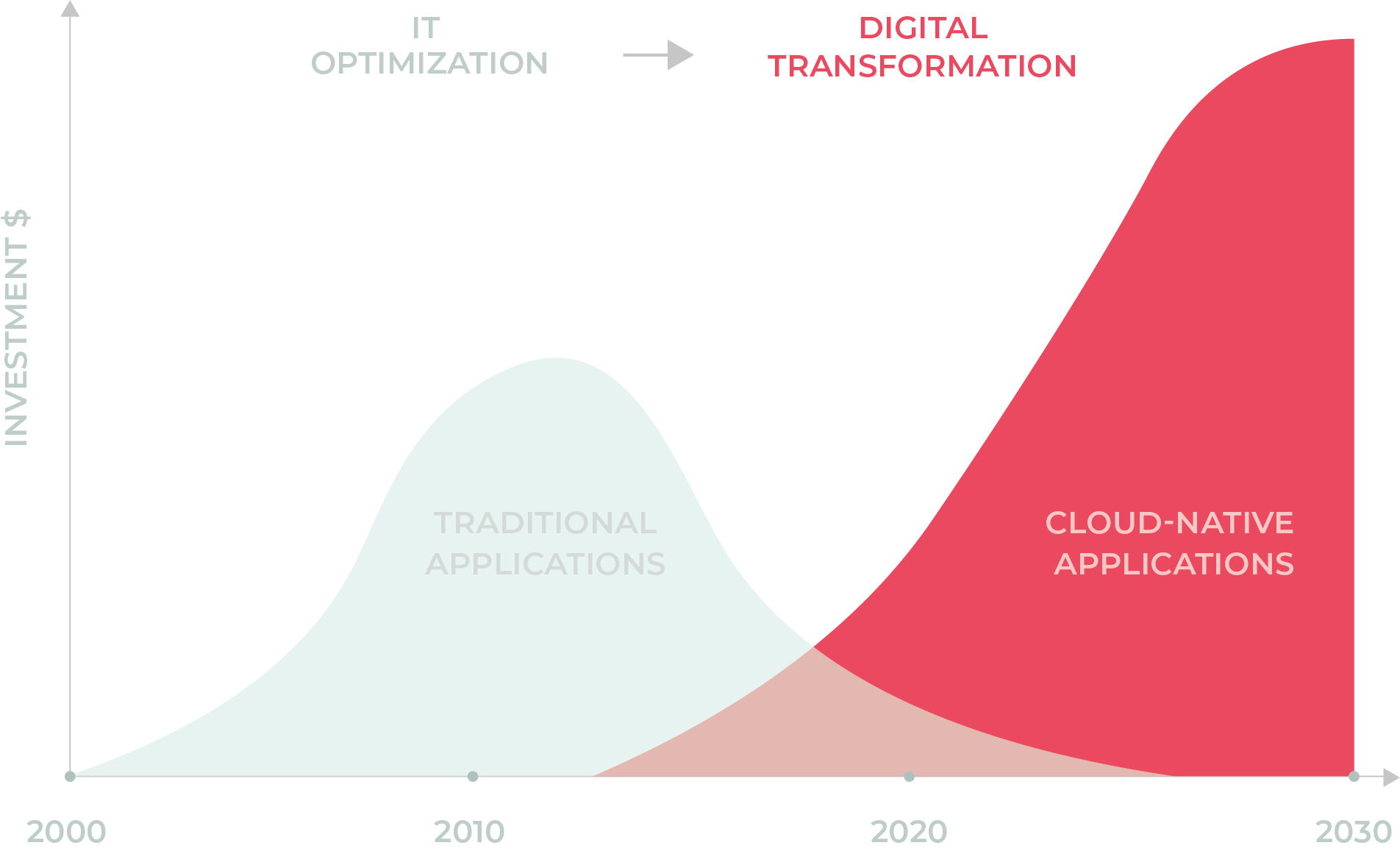Or in other words with cloud and microservices in place, you will be ready to iterate and deploy quickly and more often which essentially makes cloud-native a powerful, promising technology that companies are understandably eager to leverage.
As you might imagine, the possibilities of cloud-native development are nearly endless and easily adapt to all industries.
From IT optimization towards digital transformation
Let’s break down the key benefits for your business:
- Reduced time to market.
Traditional applications usually take a lot of time to be built, especially when compared to their cloud-native counterparts, which ensure maximum flexibility by continuously deploying as you go and thus become the key differentiator between an innovative organization and their competition. - Reduced cost.
Cloud-native is very cost-effective, through the pay-as-you-go system, which means you will only pay for the resources you actually consume. - Improved customer experiences
Building a great customer experience requires you to ship new features faster and keep iterating continuously, which is one of the core characteristics of cloud-native development. On top, your clients will technically be able to access your app from any internet-ready device. - Ease of management
Serverless platforms like Azure let you upload code in the form of functions and the platform runs those functions for you. In other words, infrastructure management becomes nearly effortless for your IT Teams. - Reliable systems and reduced down-time.
When failures happen, the downtime and in turn the costs, for legacy applications can be immense. With cloud-native apps, an incident can easily be isolated, which guarantees higher uptime and further improves the user experience.
- Scalability.
Cloud scalability refers to the ability to increase or decrease IT resources as needed to meet changing demand. Scalability is one of the hallmarks of the cloud-native approach and one of the primary drivers of its exploding popularity with businesses. - Increased Security
The security of data is a significant concern, and the cloud might seem less secure than storing data at local storage but since cloud-native apps are built from smaller services, each secured separately, their data is actually more secure than before.
Essentially, there has never been a better time to get ahead and realize the full potential of the Cloud by re-architecting or rebuilding your applications as cloud-native.
More information
If you are looking to dive deeper into all things cloud-native and learn about its benefits for your business, come join our “Cloud Native Factory” webinar, where we will also touch on topics such as infrastructure, security, development & adoption with a cloud-native approach. Want to learn more about microservices? We’ve summed up the key benefits right here.
